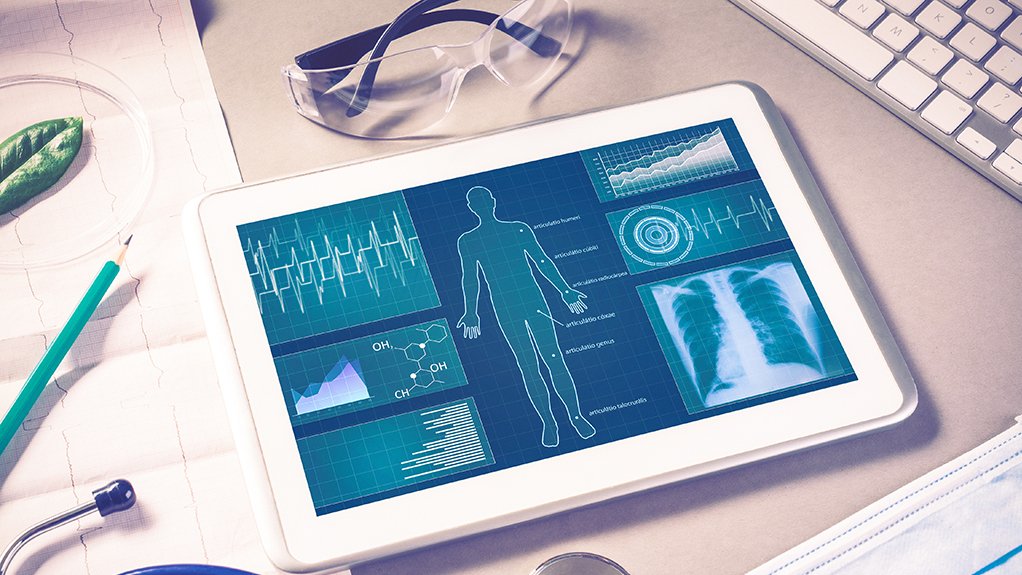Report outlines uses of AI in healthcare, education, financial systems and agriculture
A report, titled 'South Africa and Artificial Intelligence' published by Boston Consulting Group (BCG), the University of the Witwatersrand (Wits) Business School and Microsoft South Africa has highlighted possible current uses for artificial intelligence (AI) systems to make a positive impact on South Africa's healthcare, education, financial inclusion and agriculture.
Decades of AI research and development, and substantial leaps in infrastructure such as cloud, have helped to develop the technology to the point where it is mainstream and digestable, BCG South Africa MD, partner and report co-author Nihmal Marrie said at the launch of the report on September 28.
"There are specialised AI and generative AI models that have been pretrained to perform specific tasks. In the report, we highlight unique opportunities for South Africa through use cases that showcase the potential impact AI can have in the four sectors," he said.
Generative AI will unlock new use cases and complement traditional AI in certain cases. It will also provide a new range of AI offerings.
Further, generative AI will also extend current AI use cases and increase the accuracy and speed of existing models by generating better synthetic data.
"AI and generative AI can help to automate tasks, synthesise and customise content, and help with smarter decision making. These benefits will enable us as humans to do our jobs better.
"However, there are potential risks and it is now the right time to put in place regulatory guardrails to help safeguard against known and unknown risks," Marrie said.
Specifically, the report authors recommend that, once appropriate laws and regulations are in place, South Africa should adopt a public-private partnership (PPP) approach to rolling out AI.
Wits School of Electrical and Information Engineering lecturer and report co-author Martin Bekker highlighted that the general trend in technology development was that the private sector first adopts technology once it was demonstrably profitable.
"This brings funding and leads to scaling up and greater efficiency, with governments then regulating or adopting some of the functionalities that have been demonstrated," he said.
Governments do not typically lead the technology adoption charge, but their collaboration can also ensure that AI solutions are accessible and beneficial to all South Africans.
"Any technology that provides material benefits but has material costs will mean that only a portion of the population can access it and this stretches the wealth divide. However, there are examples of leapfrogging over the past 20 years, with Internet access no longer requiring a computer and being accessed through cellphones. There could be similar trends in the adoption of AI," said Bekker.
One option to ensure AI systems are accessible to all is to provide localised AI technology free of charge to everyone as a public service.
"We hope to see ways in which generative AI and AI applications can be made available to ordinary people and in an orderly fashion to democratise access and use," he said.
"The public and private sectors can join forces and pool resources to roll out AI. Collaboration through PPPs would help to prove concepts, and it would reduce the cost and increase the speed of a major AI scale-up," the report said.
USE CASES
In healthcare, AI can function as an assistant, transcribing and summarising each consultation and automatically keeping patient records regularly updated. This will enable doctors and nurses to spend less time on administrative tasks and more time on patient care, the report highlighted.
DeepScribe provides AI scribing services to practitioners in the US. It was trained on data from two-million patient encounters. It can filter out small talk, identify key medical information and generate complete electronic health record-ready notes.
The impact of the tool has enabled healthcare providers to achieve a 75% reduction in documentation time and see two extra patients per day, the report authors said.
Further, AI can also support personalised diagnosis and treatment recommendations for patients, by using AI-driven analyses of data and taking account of available inventory in hospital pharmacies.
"This support for diagnosis and treatment, and the alignment on available drugs, will also free up time for doctors to spend with patients, and will improve patient care and experience.
"The increase in doctor productivity will improve the efficiency of South Africa’s over-stretched public health system," the report noted.
However, doctors would need to maintain a reasonable mistrust, to protect against AI hallucinations, which is non-factual generated information, and data bias, they warned.
Meanwhile, for education, if access to the Internet, computers and digitiation of materials were improved appropriately, AI could contribute to several positive shifts in the education sector. For example, AI can help with policy, curricula and content creation.
"By analysing vast amounts of data, AI can inform policy decisions and syllabus design and create learning materials. The new content can be tailored to various grade levels and to individual students, and can be presented in the student’s preferred language," the authors highlighted.
AI can also help teachers to plan daily classes and can suggest ways of explaining complex ideas.
"In schools lacking adequate resources and materials, teachers cannot teach their classes as effectively as they might.
"However, with the help of AI, they will be able to produce stimulating visual aids and easy-to-understand explanations in their daily classes. Thereby, they can bring abstract topics to life, and sharpen their students’ critical thinking," the report said.
Further, AI should also eventually fine-tune lesson plans for the teachers and produce tailored materials. For example, NolejAI, in France, has made its instructional content generator publicly available for users.
"NolejAI enables educators to upload text, video or audio and creates interactive lessons. Its impact is that educators generated content 50 times faster and 20 times more cheaply than when using traditional methods," the report said.
Additionally, banks will be able to increase transparency on products and services, and increase trust from clients by deploying AI-powered chatbots to handle routine client queries and provide timely responses, as chatbots consistently provide accurate responses.
Banks will also then be able to communicate in the client’s home language, and reduce the costs of serving clients, and thereby reduce prices for clients, while also providing personalised recommendations for individuals' needs.
Meanwhile, in agriculture, AI can analyse data to help farmers optimise the efficiency and sustainability of their farming practices.
Sensors, drones and satellite imagery can gather real-time data on crops, including details on soil health, water usage, crop growth and the presence of pests, and then analyse the data using AI algorithms to best use their resources and maximise their crops.
"For AI and generative AI to fulfil their potential in easing or resolving South Africa’s pressing societal issues, the country’s citizens will have to play their part, collectively and individually. The public and private sectors will need to engage in constant open dialogue, concerted action and cross-functional collaboration," the report said.
"While AI is not a silver bullet, the use cases demonstrate real-world examples of the benefits that it can bring. South Africa has its own unique context and challenges, but AI enables us to think differently about how we can solve our problems in a different manner," said Marrie.
"But we have to take a pragmatic approach and think about the high-value and high-impact use cases that we should then pilot in smaller groups to test our assumptions. This will help to shape AI and its use into a component of the silver bullet," he said.
Article Enquiry
Email Article
Save Article
Feedback
To advertise email advertising@creamermedia.co.za or click here
Press Office
Announcements
What's On
Subscribe to improve your user experience...
Option 1 (equivalent of R125 a month):
Receive a weekly copy of Creamer Media's Engineering News & Mining Weekly magazine
(print copy for those in South Africa and e-magazine for those outside of South Africa)
Receive daily email newsletters
Access to full search results
Access archive of magazine back copies
Access to Projects in Progress
Access to ONE Research Report of your choice in PDF format
Option 2 (equivalent of R375 a month):
All benefits from Option 1
PLUS
Access to Creamer Media's Research Channel Africa for ALL Research Reports, in PDF format, on various industrial and mining sectors
including Electricity; Water; Energy Transition; Hydrogen; Roads, Rail and Ports; Coal; Gold; Platinum; Battery Metals; etc.
Already a subscriber?
Forgotten your password?
Receive weekly copy of Creamer Media's Engineering News & Mining Weekly magazine (print copy for those in South Africa and e-magazine for those outside of South Africa)
➕
Recieve daily email newsletters
➕
Access to full search results
➕
Access archive of magazine back copies
➕
Access to Projects in Progress
➕
Access to ONE Research Report of your choice in PDF format
RESEARCH CHANNEL AFRICA
R4500 (equivalent of R375 a month)
SUBSCRIBEAll benefits from Option 1
➕
Access to Creamer Media's Research Channel Africa for ALL Research Reports on various industrial and mining sectors, in PDF format, including on:
Electricity
➕
Water
➕
Energy Transition
➕
Hydrogen
➕
Roads, Rail and Ports
➕
Coal
➕
Gold
➕
Platinum
➕
Battery Metals
➕
etc.
Receive all benefits from Option 1 or Option 2 delivered to numerous people at your company
➕
Multiple User names and Passwords for simultaneous log-ins
➕
Intranet integration access to all in your organisation




















